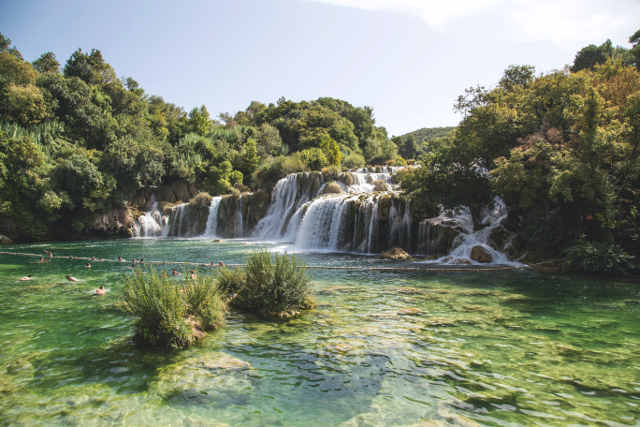Jack D. Forbes (Powhatan-Renapé and Lenape) was the author of Columbus and Other Cannibals, one of the most important books ever written. In this writing Jack Forbes offers thanks to those living with awareness of the interconnectedness of all life.
Thank you mother earth, for holding me on your breast.
You always love me no matter how old I get.
This is closely related to having a ‘face.’ Being good is, traditionally, not merely an admonition, but instead, an active principle bringing together good intentions, good actions, and harmony with the universe.
On the whole, the history of the world (prior to the conquest of the cannibal civilization) reveals a land where most human groups followed, or tried to follow, the ‘pollen path’ (as the Navajo people call it) or the ‘good, red road’ (as the Lakota call it). The pollen path and the red road lead to living life in a sacred manner with continual awareness of the inter-relationships of all forms of life.
For some, the good red road includes the necessity of suffering, or of the sacrifice of something which really belongs to us alone such as our very flesh, or, for others, our lives as they are lived in service to others.
Life is an adventure and we should try to be worthy of the gifts bestowed upon us. When death touches, a new path will open up for us, a path faced by most traditional peoples with confidence and beautiful thoughts, as illustrated in this old Wintu song by Jim Thomas:
Above shall go / the spirits of people / swaying rhythmically / swaying with dandelion puffs in their hands.
Jack D. Forbes (January 7, 1934 – February 23, 2011) was an Powhatan-Renapé and Lenape indigenous writer, scholar and political activist, who specialized in Native American issues. He is best known for his role in establishing one of the first Native American Studies programs (at University of California Davis). His book Columbus and Other Cannibals (1978) is foundational to the anti-civilization movement. Forbes analysis of civilization enabled readers, listeners and learners across decades to understand the systems that enable terrorism, genocide, and ecocide.
Featured image: Milada Vigerova via Unsplash
